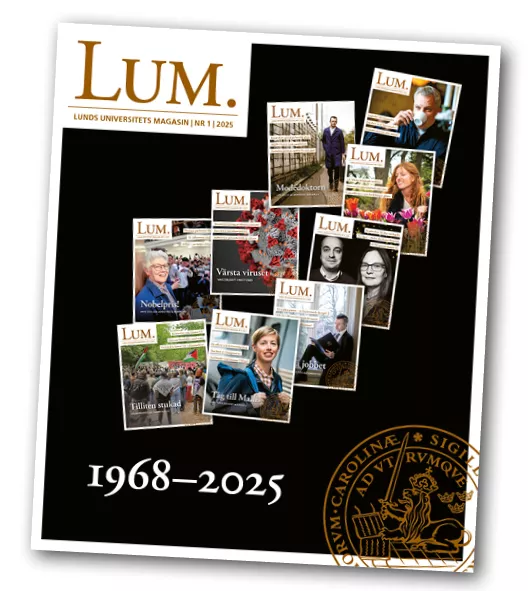Trusting one’s gut instinct can bring rewards. In Timothée Parrique’s case that was certainly true – today, his thesis “The political economy of degrowth” from 2019 has been downloaded tens of thousands of times and last year he had a book on the same topic published in his native France. But, if he had been swayed by colleagues’ warnings about choosing such a controversial research subject, the outcome might well have been different.
“Many thought it was strange. An economist studying degrowth is often viewed in the same way as a physician studying torture. If growth means affluence, why would anyone try to find ways to negate it? At that time, certain colleagues warned me that writing a thesis on the subject would be tantamount to professional suicide,” he says.
A critique of the hunt for growth
That is not quite how it turned out. Today, he is a sought-after speaker, a postdoc at Lund University’s Agenda 2030 Graduate school and has links to the Department of Business Administration. He first encountered the concept of degrowth during a summer course in Barcelona in 2014. Put simply, it is a critique of the West’s indefatigable hunt for growth with climate change as a consequence. Through degrowth, the ecological footprint of rich countries would be reduced, and instead of measuring wealth through GDP, other values would be used. The term has been in use since the early 2000s.
“Degrowth refers to a decline in economic activity that is democratically planned in a spirit of social justice and intended to improve wellbeing,” says Timothée Parrique.
Not an option to continue
For him, the case is closed – unless we drastically reduce our production and consumption, we are doomed. To continue as before, he believes, is not an option.
“The hunt for economic growth in rich parts of the world is putting humanity on course for suicide. It is a catastrophe that is already being felt by vulnerable population groups whose existence is affected by the ecological collapse.”
Instead of GDP, Parrique argues, we ought to place greater importance on parameters that measure our wellbeing. He sees degrowth as a way to achieve a “post-growth” society, in which the economy blooms without growth, and in harmony with nature.
“Just as a car engine cannot be bigger than the car itself, the economy cannot grow larger than the ecosystems that support it. From a social perspective, the post-growth paradigm strives to improve the quality of life within the constraints of the planet.”
Green growth is not the solution
He has little time for the notion that it might be possible to achieve a sustainable society through so-called green growth, where growth is decoupled from negative climate and environmental impacts.
“It is impossible to produce anything without energy and materials.” This simple physical truth flies in the face of many economic theories that assume that technological progress can decouple production from environmental impact,” he says, and continues:
“The work that I have done since 2019 clearly demonstrates that high income countries have not succeeded in “greening” their growth in any meaningful way. The choice before us is either to plan for degrowth today, in order to return to a sustainable economy, or face collapse tomorrow.
Creativity is needed
Not everyone shares that vision of the future. Among many economists, a market economy and growth remain central, even during the transition to a more sustainable society. For Timothée Parrique, it is plain to see that old theories must be swept away to make room for new ones.
“After 20 years, the subject of degrowth is finally considered worthy of academic research. Most economists, however, continue to dismiss it. If anything, this shows what a lack of imagination exists in most economics departments. Traditional economists often repeat the same trick – tax on carbon and technological advances – as the ultimate solution to all environmental problems and refuse to take on board newer, more sophisticated interdisciplinary literature that shows they are mistaken. They stubbornly attempt to solve today’s problems with yesterday’s theories. It is time to push a bit of creativity into economic theory.”




